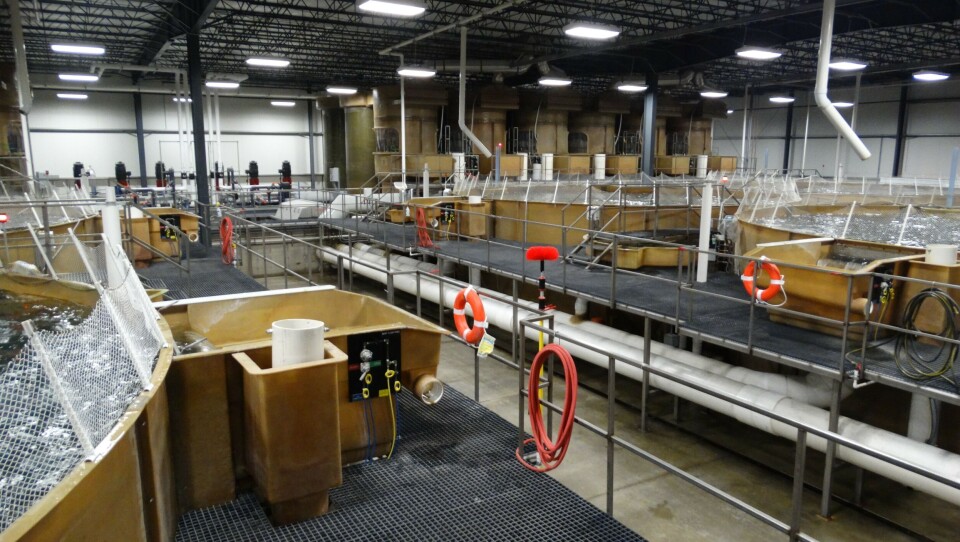
AquaBounty gets go-ahead to issue 30 million shares
Shareholders of transgenic-salmon producer AquaBounty Technologies yesterday approved plans to increase the number of common shares in the company from 50 million to 80 million.
The move will give AquaBounty the ability to raise more money through the stock market as and when required.
Massachusetts-based AquaBounty is due to harvest its first batch of AquAdvantage salmon from an on-land farm near Albany, Indiana, before the end of the year. AquAdvantage salmon have an inherited genetic modification that makes them grow faster than standard Atlantic salmon, thus improving the economic viability of growing fish in recirculating aquaculture systems (RAS).
10,000 tonnes in Kentucky
The Albany RAS has an annual capacity of just 1,200 tonnes, and AquaBounty has been seeking to expand. In October it announced that it had chosen Mayfield, Kentucky as the potential location for a larger RAS facility with a 10,000-tonne annual production capacity.
AquaBounty has consistently made losses during a long run-up to commercialisation, partly caused by a delay in US authorities giving it permission to grow and sell its fish, but that has not stopped it being attractive to investors.
The company has raised $47 million through share offers this year, which it is using for working capital costs and general corporate purposes, including potentially purchasing land and towards costs associated with the construction or site development for its new farm.
Environmental assessment
The US Food and Drug Administration (FDA) has been satisfied that AquaBounty’s salmon are safe to eat since 2015, but questions over how the fish should be labelled delayed approval for sale until last year.
Recently, Federal Judge Vince Chhabria of the US District for the Northern District of California found that the FDA violated the National Environmental Policy Act (NEPA) and Endangered Species Act (ESA) in approving AquAdvantage salmon. He was presiding in a case brought by commercial fishermen and anti-GMO groups focused on the potential environmental impacts of raising AquAdvantage salmon.
The judge ordered the FDA to carry out a more complete environmental assessment of what could happen in the unlikely event of the salmon escaping from on-land facilities but did not ban the production and sale of the fish.
Sterile fish
AquaBounty chief executive Sylvia Wulf said the decision would not have an impact on the company’s on-going operations on Prince Edward Island, Canada to produce eggs or in the raising and selling of AquAdvantage salmon from its farm in Indiana.
“We are committed to working with FDA on next steps and continue to evaluate the legal decision,” said Wulf.
AquaBounty’s Albany farm contains a number of screens, nets, filters, gates, gates, grates and cages to prevent an escape into the wild. Even if a fish was to get past the barriers and reach a watercourse, it couldn’t breed with wild stock because all the company’s fish are sterile females.























































